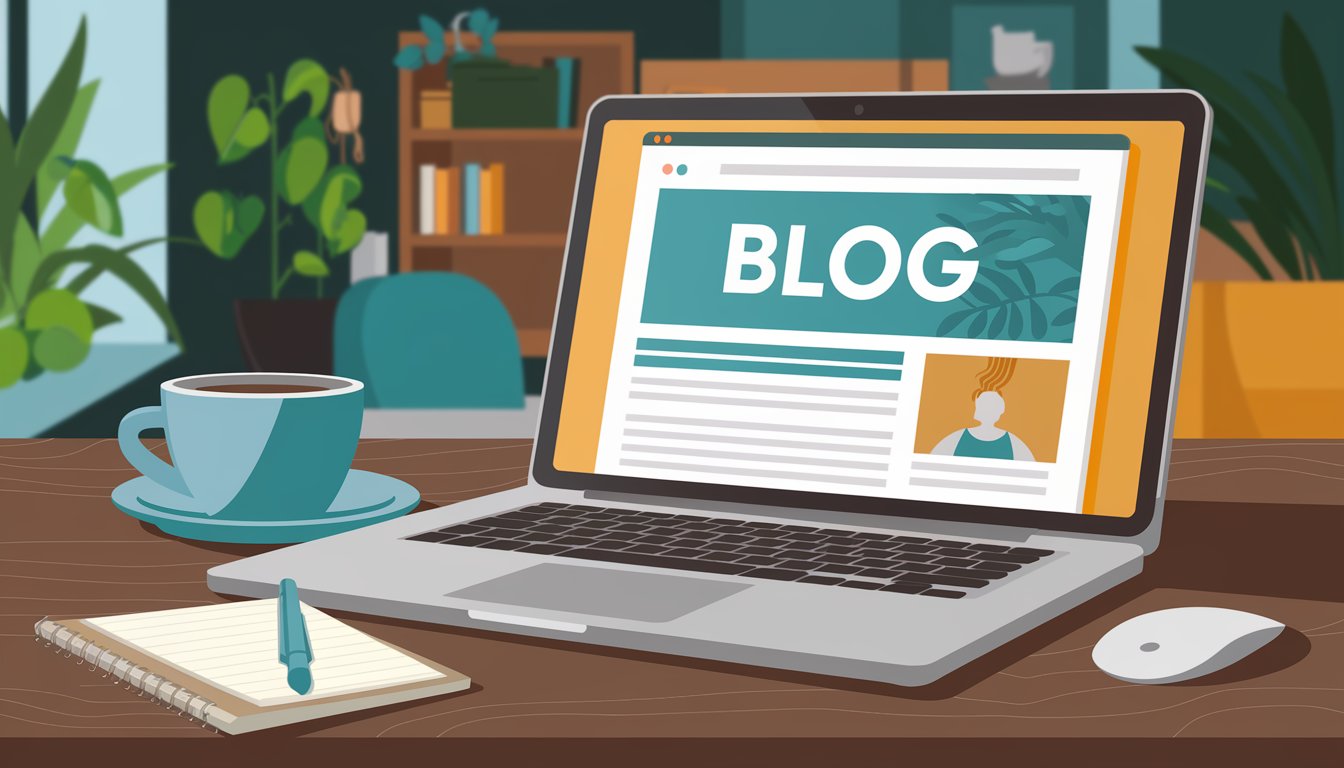How To Handle Negative Comments and Feedback
Imagine you’ve worked hard on a project, only to receive sharp criticism that feels like a personal attack. While this can be disheartening, it also presents an opportunity for growth. Negative comments can shape us, much like a river shapes stone.
Studies show that leaders who embrace criticism earn more favorable views from their teams. Focusing solely on positive feedback can obscure our true potential. In fact, 94% of people might avoid businesses with bad reviews, yet 53% expect quick responses to complaints, and 63% feel ignored without one.
It’s crucial to respond with kindness rather than haste. Only 13% of responses include apologies, but discussing how you’ll improve is even more valuable. Being honest online, especially on social media, builds trust. Negative feedback can be a stepping stone to improvement and customer loyalty.
Let’s explore how to handle negative comments and feedback effectively.

The Role of Negative Feedback in Personal Growth
Understanding negative feedback is key in life and work. It helps us grow and build better relationships. Growth from criticism is hard but essential.
Learning to listen to harsh truths is hard at first. But seeing it as a chance to get better makes it easier. This way, we turn tough talks into chances for growth.
Getting used to criticism takes time. It starts with choosing to listen and learn, not just defend. This mindset helps us grow and learn more.
This approach also makes us more engaged at work. It leads to a culture that always wants to get better. This makes teams more dynamic and responsive.
Welcoming and using negative feedback builds resilience. It sharpens skills and boosts confidence. It’s a powerful tool for growth in our careers and lives.
Mastering Professionalism in the Face of Criticism
Getting feedback at work is a normal part of life. It’s how we react that matters. Learning to handle feedback well is key to growing in our careers.
When faced with criticism, staying calm is important. This lets us listen better and understand the feedback. About 30% of feedback is meant to help us improve.
Offering a professional response means being clear and taking responsibility for mistakes. This boosts our communication skills, which 85% of customers value. Also, about 60% of people grow more when they handle criticism well.
Getting feedback from at least three people helps us see our strengths and weaknesses better. This boosts our understanding by 40%. Also, responding quickly and kindly to feedback can keep customers coming back by 90%.
Keeping a positive attitude and using deep breathing helps us stay calm. This can help us grow personally and improve our work environment.
Step-by-Step Guide to Responding to Negative Comments
Receiving negative feedback can be challenging, but it also offers valuable opportunities for growth and improvement. Here’s a structured approach to handling such comments effectively.
- Take time to reflect on the feedback instead of reacting immediately.
- Thank the person for their input, even if it’s negative. This demonstrates openness to learning.
- Show willingness to listen and improve, which enhances respect in the workplace.
- Identify and correct any issues highlighted in the feedback promptly.
- Respond with actionable solutions and invite further suggestions, indicating that you value their perspective.
- Frame the feedback as an opportunity for growth, keeping the conversation constructive.
- Recognize the importance of effective communication in today’s job market.
Strategies for Handling Criticism From Online Trolls
Dealing with online trolls can be daunting, but employing effective strategies can help maintain a positive online presence. By setting boundaries and knowing how to differentiate between constructive criticism and malicious comments, you can protect your mental space.
- Avoid engaging with trolls to prevent escalation.
- Choose when to engage and establish limits for interactions.
- Establish rules for acceptable behavior, making it easier to manage comments.
- Identify helpful feedback even when it’s harsh, and engage with those comments positively.
- Not responding to trolls to make them lose interest.
- Utilize blocking, reporting, and filters to maintain a positive environment for followers.
Tactics for Dealing With Negative Reviews and Comments Online
Handling online criticism and negative comments effectively is crucial for maintaining a strong brand presence. Research shows that 95% of businesses monitor social media closely, responding swiftly to negative feedback to show they value their customers.
Expressing empathy, even when the issue isn’t entirely your fault, can help resolve conflicts. Studies indicate that 88% of companies personalize their responses, demonstrating that they listen and care about customer concerns.
To prevent escalation, 62% of businesses move sensitive discussions to private channels, allowing for a more constructive and discreet resolution.
Viewing complaints as valuable feedback is transformative. When customers feel heard and supported, they’re more likely to remain loyal.
While deleting negative comments might seem tempting, transparency builds trust. Keeping comments visible shows honesty and integrity, with 83% of companies using feedback management tools to stay responsive. This openness strengthens customer connections and fosters trust.
The key to managing online negativity lies in being prompt, empathetic, and transparent. Every review and comment becomes an opportunity for growth and improvement.
Responding to Negative Comments With Compassion
When faced with online negativity, it’s key to reply with empathy. This helps keep a brand’s good name and customer trust. I start by understanding the commenter’s point of view. This helps calm things down and makes for a respectful chat.
Studies show rude comments can lead to more rudeness. So, I take a moment to think about the bigger picture. Using calm “I” statements helps set clear boundaries, which is important in any professional talk.
Asking questions can also turn negative talks into positive ones. It makes people think about why they said something. Plus, it’s good to acknowledge our feelings and efforts. This helps us handle negativity without hurting ourselves or our work ethics.
It’s also important to remember that 84% of people see online reviews as personal advice. And 52% think a product is more believable with both good and bad reviews. So, seeing each negative comment as a chance to show care can turn critics into supporters. This shows our brand’s commitment to our customers.
Addressing Negative Remarks With Effective Communication
My strategies have been crucial, especially when others fail. By responding in a way that shifts the conversation, I turn bad interactions into chances for growth.
For instance, offering different views helps steer talks away from negativity. This leads to more positive and useful discussions.
I’ve seen how Tim Ferriss and the Mayo Clinic handle comments. They show the value of respect and relevance on their platforms. This matches my approach, using tools to keep conversations healthy.
Professor Steve Jones and Andrew Warner of Mixergy also guided me. They teach the importance of balancing real concerns with avoiding hostility. By listening to my audience, I’ve made my content better and connected more with readers.
Following the Forbes Communications Council, I now quickly respond to negative comments on social media. I aim to show I care and am reliable. By talking privately, I can fix public issues and change how people see me.
By owning up to mistakes and wanting to fix them, I turn criticism into a chance to grow. My audience’s feedback helps me improve in the fast-changing digital world.
Converting Negative Remarks Into Positive Change
When I started using negative feedback to grow, my life changed a lot. Negative feedback can be very helpful. It’s like a tool that helps us get better.
Feedback from work or team meetings can be very useful. For example, I got feedback on my speaking skills. I then improved my talking and working with others, which improved my work and united my team.
Feedback can even make enemies into friends. I changed how I managed projects because of honest feedback from my team. This has made our workplace better and more productive.
Listening well and saying thank you for feedback was important. Then, I set goals and checked my progress. This made me more active in improving.
Knowing that feedback can help us grow is key. It’s how we react that matters. We should always look forward and grow.

Turn the Tide: Craft Connection From Critique
Handling negative comments and feedback can be challenging. However, it also presents an opportunity to demonstrate your listening skills and commitment to improvement.
Start by remaining calm and thanking the person for their feedback, then constructively address any specific concerns they may have. If a comment is overly negative or inappropriate, remember that it’s perfectly acceptable to set boundaries.
Thoughtful responses not only build trust but can also transform challenging moments into valuable connections. Embracing this approach allows you to foster a more positive dialogue and enhance your relationships, even in difficult situations.
Mastering the art of handling negative comments is just one part of creating a successful blog. Ready to discover more strategies for engaging and connecting with your audience?
Check out After Social’s comprehensive guides on topics ranging from crafting compelling content to managing your online reputation. Learn how to turn challenges into opportunities and keep your blog thriving!






Post Comment